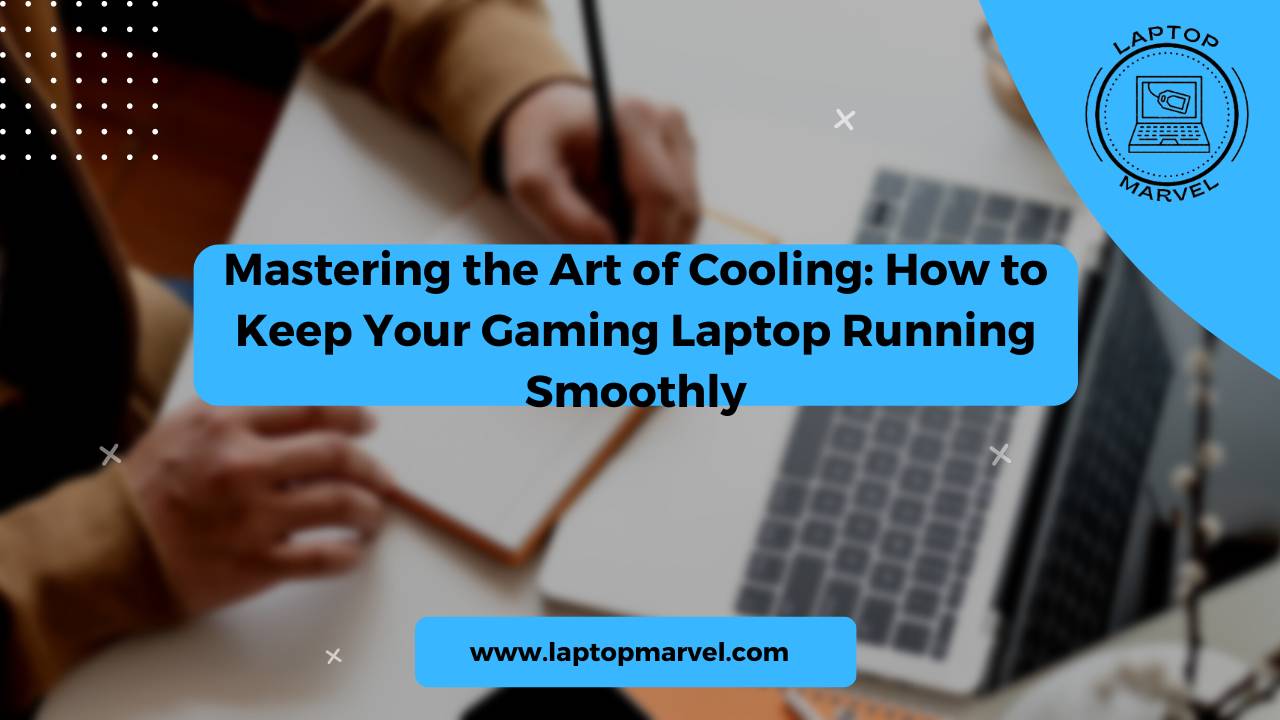How to Keep Your Gaming Laptop Running Smoothly: Gaming laptops are powerful machines designed to handle intensive gaming sessions, but with great power comes great heat. Overheating can not only affect gaming performance but also potentially damage internal components. In this guide, we’ll explore effective strategies to keep your gaming laptop cool and ensure optimal performance and longevity.
Understanding Thermal Management in Gaming Laptops:
Gaming laptops generate heat due to the intense processing power required to run graphically demanding games. Components such as the CPU and GPU produce heat during operation, and without proper cooling mechanisms, this heat can build up, leading to performance throttling and potential hardware damage.
Tips for Improving Airflow and Ventilation:
To enhance airflow and ventilation, it’s essential to keep your laptop’s vents and fans clean and unobstructed. Elevating the laptop with a laptop stand or cooling pad can also improve airflow. Additionally, investing in external fans or dedicated laptop cooling solutions can provide supplementary cooling during intense gaming sessions.
Optimizing Laptop Settings for Cooling:
Adjusting in-game graphics settings can reduce strain on the GPU and CPU, thereby lowering heat generation. Monitoring system temperatures using software utilities allows you to keep track of heat levels and adjust settings accordingly. Limiting background processes and applications further minimizes heat generation, promoting a cooler gaming experience.
Using Thermal Pads and Thermal Paste:
Installing thermal pads enhances heat transfer between components and heatsinks, improving overall thermal management. Applying high-quality thermal paste ensures proper contact between the CPU/GPU and heatsink, optimizing heat dissipation. Whether opting for DIY solutions or seeking professional assistance, thermal management is crucial for maintaining optimal temperatures.
Managing Power and Performance Settings:
Enabling power-saving modes when gaming on battery power conserves energy and reduces heat generation. Adjusting performance settings in BIOS or gaming software allows for a fine balance between performance and temperature. However, overclocking should be approached cautiously, as it can significantly increase heat output.
Environmental Factors and Best Practices:
Avoiding gaming in hot environments or direct sunlight minimizes heat buildup. Using the laptop on hard, flat surfaces promotes better airflow and ventilation. Regular maintenance and cleaning, including dust removal from vents and fans, prevent obstruction and prolong laptop lifespan.
Conclusion:
Keeping your gaming laptop cool is essential for optimal performance and longevity. By implementing effective cooling strategies, such as improving airflow, optimizing settings, and using thermal management solutions, you can ensure a smoother gaming experience. Installing laptop memory is another way to enhance your laptop’s performance. Remember to prioritize regular maintenance and best practices to keep your gaming laptop running cool and efficient for years to come.
Read more: how to install laptop memory
FAQ’s
1. How often should I clean my gaming laptop’s vents and fans to prevent overheating?
It’s recommended to clean your gaming laptop’s vents and fans every few months, or more frequently if you notice a buildup of dust or debris. Regular cleaning helps maintain optimal airflow and prevents overheating, which can degrade performance and potentially damage internal components.
2. Can using a cooling pad or external fan really make a difference in cooling down my gaming laptop?
Yes, using a cooling pad or external fan can significantly improve airflow and ventilation around your gaming laptop. These accessories help dissipate heat more effectively, especially during intense gaming sessions when the laptop’s internal cooling system may struggle to keep up. Investing in a quality cooling pad or external fan is a worthwhile addition to your gaming setup for enhanced thermal management.
3. Is it safe to use overclocking to boost gaming performance on my laptop, or will it lead to overheating issues?
While overclocking can provide a performance boost for gaming, it also increases heat output from your laptop’s components. If not managed properly, overclocking can lead to overheating and potential damage to internal hardware. It’s essential to monitor temperatures closely and ensure adequate cooling measures are in place before attempting to overclock your gaming laptop. Additionally, be mindful of the increased strain on your laptop’s components and the potential impact on its lifespan.
